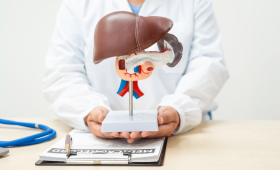Cancer continues to be one of the biggest challenges for modern medicine. However, thanks to groundbreaking discoveries in genetics, molecular biology, and immunology in recent years, a new era in the fight against cancer has begun. We are now moving beyond traditional methods that only target the tumor, developing new approaches that activate the body’s own defense mechanisms, attack tumor-specific molecular targets, and offer personalized treatment plans. In this guide, we will delve into today’s most innovative cancer treatments and what they mean for patients in Turkey.
1. Immunotherapy: The Body’s Own Defense Power
Immunotherapy is a treatment method that strengthens the immune system or releases its “brakes” to enable it to recognize and destroy cancer cells. This method, which cleverly uses the body’s natural defense mechanism, has shown promising results in many types of cancer. Unlike traditional chemotherapy, immunotherapy is often associated with fewer side effects and can provide long-term remission. The developments in this field are creating a radical change in cancer treatment.
2. Checkpoint Inhibitors
Cancer cells use checkpoint proteins (e.g., PD-1, PD-L1, CTLA-4) to “hide” from the immune system. These proteins suppress the activity of immune cells called T-cells. Checkpoint inhibitors block these proteins, allowing T-cells to recognize and attack cancer cells. Successful results have been achieved in many types of cancer, such as melanoma, lung cancer, and kidney cancer. In Turkey, these drugs are also used for appropriate indications and offer significant clinical benefits.
3. CAR-T Cell Therapy: Living Drugs
CAR-T (Chimeric Antigen Receptor T-Cell) therapy involves genetically modifying the patient’s own T-cells and equipping them with new receptors that can target cancer cells. These “living drugs” are then given back to the patient with the goal of finding and destroying cancer cells. It has yielded revolutionary results, especially in certain types of blood cancer (acute lymphoblastic leukemia, diffuse large B-cell lymphoma). Research and some applications in this field have also started in Turkey. However, the high cost and complexity of this treatment are factors that limit its widespread use.
4. Oncolytic Viruses
Oncolytic viruses are specially designed viruses that selectively infect and destroy cancer cells, while not harming healthy cells. After entering the cancer cells, they multiply and cause the cell to burst and die. The cancer antigens released during this process stimulate the immune system, triggering a stronger response against the tumor. This method, approved for melanoma treatment, is also being researched for other cancer types like brain tumors.
5. Smart Drugs and Targeted Therapies
Targeted therapies, unlike chemotherapy, target only specific molecular pathways or proteins necessary for the growth and division of cancer cells. These “smart drugs” are determined by analyzing the genetic profile of the cancer cell. Imatinib, used in the treatment of CML (chronic myeloid leukemia) with the BCR-ABL fusion protein, is one of the first and most successful examples of this approach. Since these drugs cause less damage to normal cells, their side effects are generally milder than chemotherapy.
6. Signal Pathway Inhibitors
Cancer cells over-activate intracellular signaling pathways (e.g., MAPK, PI3K/AKT pathways) to grow uncontrollably. Signal pathway inhibitors aim to block these pathways to stop the growth and proliferation of cancer cells. These drugs, which are generally small molecules, are particularly effective in tumors with genetic mutations.
7. Antibody-Drug Conjugates (ADCs)
ADCs are innovative hybrid drugs that link a monoclonal antibody to a potent chemotherapy drug. The antibody binds to a specific receptor on the cancer cell, delivering the drug directly into the tumor cell. This eliminates the need for the drug to spread throughout the body, protecting healthy tissues. ADCs approved for breast cancer and some types of lymphoma have taken targeted therapy to the next level.
8. Gene Therapy and CRISPR Technology
Gene therapy aims to correct genetic defects that cause cancer or to modify genes to provide defense against cancer. In recent years, the CRISPR-Cas9 gene editing technology has accelerated studies in this field by providing the ability to make precise changes to genetic material. In cancer treatment, applications such as editing the genes of immune cells to increase their ability to recognize tumors are being researched.
9. Cancer Vaccines
Cancer vaccines target specific antigens (proteins) on cancer cells to encourage the immune system to develop a response against the tumor. Prophylactic (preventive) vaccines (e.g., HPV vaccine) aim to prevent cancer from developing, while therapeutic vaccines aim to treat existing cancer. These vaccines can also be prepared in a personalized manner, using antigens obtained from the patient’s tumor.
10. Nanotechnology and Cancer Treatment
Nanotechnology offers potential in many areas of cancer treatment, such as delivering drugs more accurately to the target, imaging tumors, and manipulating cells. Nanoparticles can carry chemotherapy drugs or genetic material to accumulate in tumor tissue. This increases the drug’s effectiveness while reducing side effects. Cancer research in nanotechnology is also gaining momentum in Turkey.
11. Precise Surgical Techniques
Minimally invasive (small incision) techniques and robotic surgery are becoming increasingly common in cancer surgery. Laparoscopic and robotic surgery offer advantages such as less blood loss, shorter hospital stays, and faster recovery. With these technologies, surgeons can make more precise movements, causing less damage to healthy tissues surrounding the tumor. Many large hospitals in Turkey successfully apply these advanced surgical methods.
12. Personalized Medicine and Genetic Analysis
Every cancer case is unique in terms of its genetic makeup and molecular profile. Personalized medicine aims to determine the most suitable treatment by performing a genetic analysis of the patient’s tumor. This approach helps avoid unnecessary treatments and significantly increases treatment success. Next-Generation Sequencing (NGS) technology plays a key role in mapping the genetic makeup of tumors, and these analyses are becoming increasingly accessible in Turkey as well.
13. Liquid Biopsy: A Revolutionary Diagnostic Method
Liquid biopsy is a non-invasive test performed by taking a blood sample to detect tumor DNA (ctDNA) or circulating tumor cells (CTCs). This method is much simpler and safer than traditional biopsy, which requires a tissue sample from the tumor. It holds great potential in areas such as cancer monitoring, relapse detection, and assessing treatment response.
14. Proton Therapy and Advanced Radiation Methods
Proton therapy is a more precise radiation method compared to traditional radiotherapy. Proton beams stop after releasing their energy at a specific depth in the body. This feature minimizes damage to healthy tissues and vital organs behind the tumor. It is an ideal option, especially for childhood cancers, head and neck tumors, and central nervous system tumors.
15. Robotic Surgery and Artificial Intelligence
Artificial intelligence (AI) has started to be used in many areas, from cancer diagnosis to treatment planning. AI algorithms help in making more accurate diagnoses by speeding up the analysis of pathology and radiology images. In robotic surgery, robots mimic the surgeon’s hand movements with greater precision, facilitating complex operations. These technologies are being used increasingly in large teaching and research hospitals in Turkey.
16. Microbiota and Cancer
The microbiota, formed by trillions of microbes in the human body, plays a significant role in the onset, progression, and response to cancer treatment. Gut microbiota has been found to especially affect the response to immunotherapy. Research in this area holds the potential to increase the effectiveness of cancer treatments in the future by manipulating the microbiota (e.g., with probiotics).
17. The Power of Combination Therapies
It has been observed that a single treatment method is not sufficient for all types of cancer. Therefore, combination therapies, where immunotherapy and chemotherapy, targeted therapies and radiotherapy, or different immunotherapy drugs are used together, are becoming increasingly common. These strategies are designed to attack the tumor through different mechanisms and prevent the development of resistance.
18. Evolving Imaging Techniques
Advanced imaging technologies (PET-MR, AI-supported tomography) make it easier to diagnose cancer early and monitor the response to treatment. These techniques show the metabolic activity or molecular structure of the tumor, providing an opportunity to evaluate the effectiveness of the treatment at an earlier stage.
19. The Status of Clinical Trials in Turkey
Turkey has become more involved in clinical trials in the field of cancer in recent years. University hospitals and private centers participate in international multi-center studies, providing Turkish patients with access to the newest treatment methods. The participation of patients in clinical trials contributes to both the widespread use of these treatments in the country and the increase in patients’ chances of recovery.
20. Access to New Treatments and the Social Security Institution (SGK)
The cost of cancer treatments in Turkey is largely covered by the Social Security Institution (SGK). However, the process of including some new immunotherapies and smart drugs in the reimbursement scope may take time. It is important for patients and doctors to follow the current reimbursement lists of the SGK and be informed about the approval processes.
21. The Role and Support of the Ministry of Health
The Ministry of Health of the Republic of Turkey carries out important policies in the fight against cancer. Cancer screening programs, the determination of standards for diagnosis and treatment centers, and the drug licensing processes are managed by the Ministry. These processes ensure that the newest treatments reach patients in Turkey safely and effectively.
22. Cancer Centers and Specialists in Turkey
There are competent centers that apply modern cancer treatments in many university and teaching research hospitals throughout Turkey. In addition to large cities like Istanbul, Ankara, and Izmir, expert oncologists, radiation oncologists, surgeons, and other healthcare professionals work in other provinces as well. Patient associations and the experiences of their relatives can also be an important resource for finding the right specialist and center.
23. Patient Associations and Support Groups
Psychological and social support is very important for cancer patients and their relatives. Various patient associations and foundations in Turkey (e.g., Kanserle Dans Derneği, Türk Kanser Vakfı) offer platforms where patients can get information, share their experiences, and receive psychological support. These groups play an invaluable role in coping with the difficulties encountered during the treatment process.
24. Future Cancer Treatments: A Hopeful Outlook
In the future, cancer treatment is expected to become even more personalized and effective. The widespread use of AI-supported drug discovery, treatments that interfere with the tumor microenvironment, and precise diagnostic methods will increase the potential for cancer to become a chronic disease. As scientists focus on ways to break the resistance of cancer cells, new-generation treatments continue to offer hope.
25. Advice for Patients in Turkey
If you are a cancer patient in Turkey, it is important to take an active role in your diagnosis and treatment process. Getting a second opinion, discussing all treatment options with your doctor, asking whether clinical trials are suitable for you, and seeking support from patient associations will help you get through this difficult process more consciously and strongly. The innovations in cancer treatment are becoming a beacon of hope for more patients every day.



